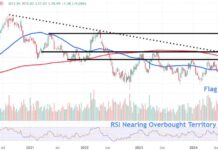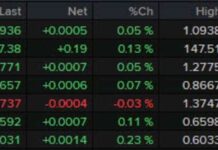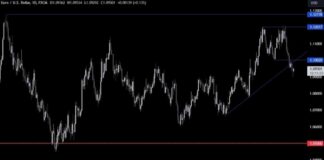Europe’s Strategic Plans for Impending Trade Conflict
As Europe braces itself for potential trade conflicts on the horizon, the question that looms large is whether the continent will be able to uphold its rule-abiding principles in the face of increasing global tensions. With the specter of trade wars looming large, it becomes imperative for European policymakers to navigate these turbulent waters with a steady hand and a clear vision for the future.
The history of trade and conflict is a long and intertwined one, dating back centuries to the days of colonial empires and mercantilist policies. Jan Pieterszoon Coen’s words from 1614, “We cannot carry on trade without war, nor war without trade,” still hold a certain truth to this day, albeit in a different context. In the modern era, trade has become a vital component of global economic prosperity, with nations engaging in complex networks of commerce that sustain their economies and livelihoods.
However, the landscape of international trade has shifted significantly in recent years, with the rise of protectionist policies and nationalist sentiments threatening to upend the established order. The European Union, long a champion of free trade and multilateralism, now finds itself at a crossroads, forced to confront the reality of a more fragmented and competitive global market.
The Challenge of Assertiveness
Sabine Weyand, the EU’s top trade negotiator, recently underscored the importance of assertiveness in maintaining open markets amidst growing geopolitical tensions. In a world where economic power is increasingly being wielded as a tool of diplomacy and coercion, Europe must find a way to assert its interests while upholding its commitment to rules-based trade.
The EU’s approach to trade conflicts has traditionally been one of negotiation and diplomacy, seeking to resolve disputes through dialogue and compromise. However, as the global trade landscape becomes more volatile and unpredictable, the bloc may need to adopt a more assertive stance to protect its economic interests and ensure a level playing field for its businesses.
The Imperative of Adaptation
Adapting to a changing world requires Europe to rethink its strategic approach to trade and economic engagement. In an era where protectionism and unilateralism are on the rise, the EU must be prepared to defend its interests and values on the global stage.
One key aspect of this adaptation is diversification, both in terms of markets and industries. Europe’s reliance on certain trading partners and sectors makes it vulnerable to disruptions and conflicts. By expanding its trade relationships and promoting innovation in new sectors, the EU can reduce its exposure to external shocks and enhance its resilience in the face of adversity.
The Path Forward
As Europe navigates the choppy waters of impending trade conflicts, it must stay true to its core principles of openness, cooperation, and the rule of law. By striking a balance between assertiveness and diplomacy, the EU can protect its economic interests while upholding the values that have guided its integration and prosperity for decades.
The road ahead may be fraught with challenges and uncertainties, but Europe’s strategic plans for the future of trade are grounded in a clear vision of a more resilient and sustainable economic order. By staying true to its principles and adapting to the changing realities of the global economy, the EU can emerge stronger and more united in the face of adversity.

















